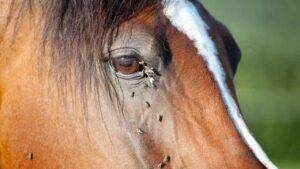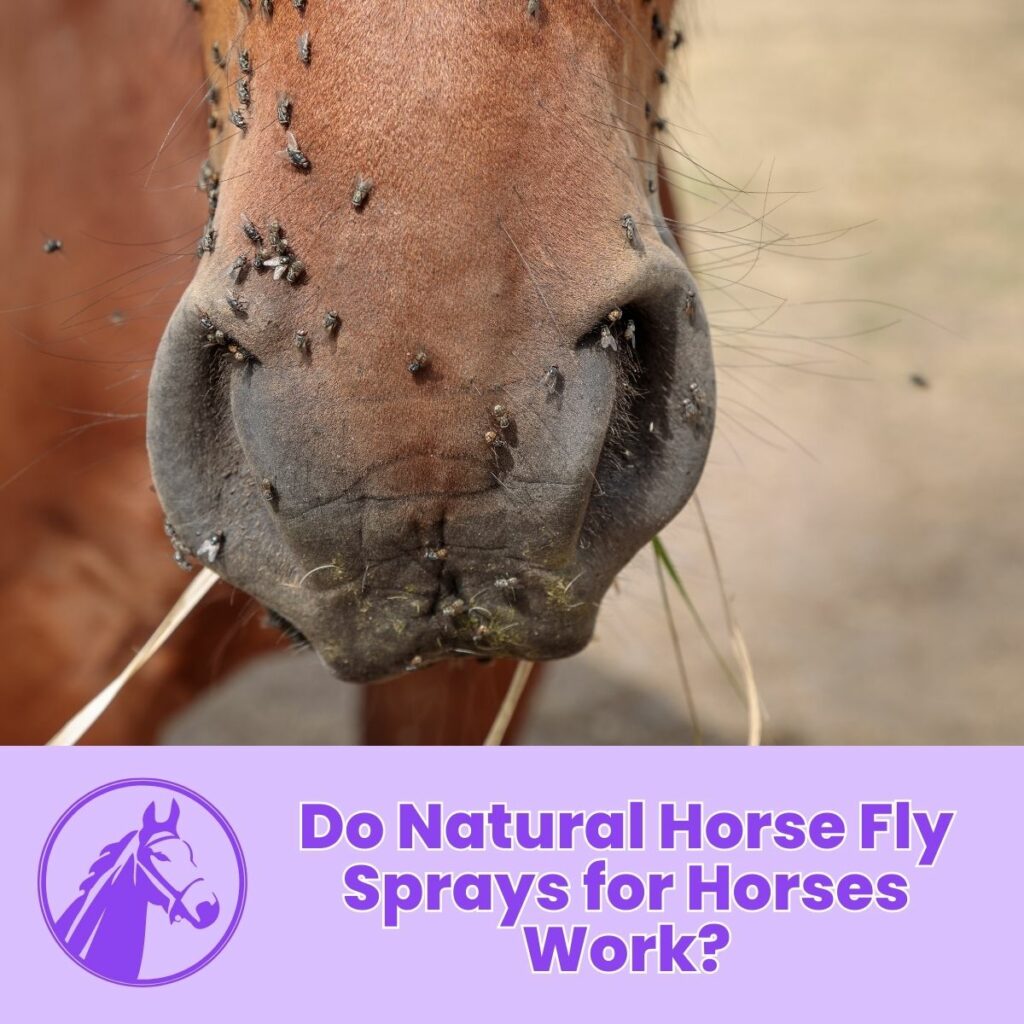As an Amazon Associate we earn from qualifying purchases.
When it comes to protecting horses from bothersome flies and insects, horse owners have numerous options available. One popular choice is natural horse fly sprays, which claim to repel flies while being gentle on the horse’s skin. But do natural horse fly sprays for horses work? In this article, we will explore the effectiveness of natural horse fly sprays and provide you with valuable insights to make an informed decision for your equine companion. So do natural horse fly sprays for horses work?
So Do Natural Horse Fly Sprays for Horses Work? Yes or No
Yes some natural horse fly sprays do work however the effectiveness of natural horse fly sprays can vary depending on various factors, including the specific product and the environment in which it is used. While some horse fly sprays may provide adequate protection, others may fall short in repelling flies effectively.
Natural fly sprays generally work by creating a scent or barrier that flies find unpleasant, thereby discouraging them from landing on the horse. Essential oils like citronella, eucalyptus, and lemongrass are commonly used in these sprays due to their repellent properties. However, it’s important to note that individual horse reactions can vary, and what works for one horse may not work as effectively for another.
Understanding Natural Horse Fly Sprays
Natural horse fly sprays are formulated using plant-based ingredients, such as essential oils and botanical extracts, that are known for their insect-repelling properties. These sprays are typically free from synthetic chemicals, making them a preferred choice for horse owners who prioritize natural and eco-friendly solutions.
SEE ALSO : Homemade Horse Fly Spray With Pine Sol Recipe

Effectiveness Factors to Consider
Concentration of Active Ingredients: The concentration of essential oils or active ingredients in the fly spray can play a crucial role in its effectiveness. Higher concentrations of repellent ingredients may offer better protection against flies.
Application Technique: Proper application of the fly spray is essential for optimal results. It’s important to thoroughly coat the horse’s body, paying attention to areas where flies tend to gather, such as the legs, mane, and tail.
Reapplication Frequency: Natural horse fly sprays may require more frequent reapplication compared to chemical-based alternatives. Factors like sweating, rain, and the horse’s activity level can affect the longevity of the spray’s effectiveness.
Environmental Conditions: The effectiveness of natural fly sprays can be influenced by environmental factors. High humidity, heavy fly populations, and specific geographical regions may require additional measures, such as fly masks or fly sheets, to provide comprehensive protection.
The Importance of Integrated Pest Management
While natural horse fly sprays can offer a degree of protection, it’s crucial to adopt an integrated approach to pest management. Combining the use of fly sprays with other preventive measures can significantly enhance the overall effectiveness of fly control. Some additional strategies include:
- Stable and Pasture Management: Maintaining clean stables, regularly removing manure, and managing vegetation around the horse’s environment can help reduce fly breeding sites.
- Fly Traps and Predators: Employing fly traps, such as sticky tapes or traps with attractants, can help capture and reduce the fly population. Additionally, introducing fly predators, such as certain species of wasps, can aid in natural fly control.
- Protective Gear: Alongside using fly sprays, providing horses with fly masks, fly sheets, and leg wraps can offer added protection against flies and other insects.
Do Natural Horse Fly Sprays for Horses Work? – Final Thoughts
In conclusion, natural horse fly sprays can be effective in repelling flies and insects, but their success depends on various factors. The concentration of active ingredients, proper application technique, reapplication frequency, and environmental conditions all play a role in determining the effectiveness of natural horse fly sprays. While these sprays offer a more natural and eco-friendly option compared to chemical-based alternatives, it’s important to remember that no product can guarantee complete protection against flies.
Remember to consult with your veterinarian or equine professionals for personalized advice and recommendations based on your horse’s specific needs. With a proactive and holistic approach to fly control, you can create a more comfortable and enjoyable environment for both you and your horse.
Amazon and the Amazon logo are trademarks of Amazon.com, Inc, or its affiliates.

Hey there, I’m Jasmine! I’m a total horse fanatic and have been working with these amazing animals for as long as I can remember. I’m passionate about sharing my love for horses with others and helping them learn more about these majestic creatures. As a professional horse trainer and riding instructor, I’ve developed a deep understanding of equine science and am committed to the welfare of horses. That’s why I founded OwnTheHorse.com, a blog where I share my knowledge and insights with fellow horse enthusiasts. I love connecting with my readers and building a friendly community of horse lovers. Whether you’re a seasoned equestrian or just starting out, I’m here to help and inspire you. Above all, I’m a friendly and compassionate person who truly cares about the well-being of horses and their human companions.

